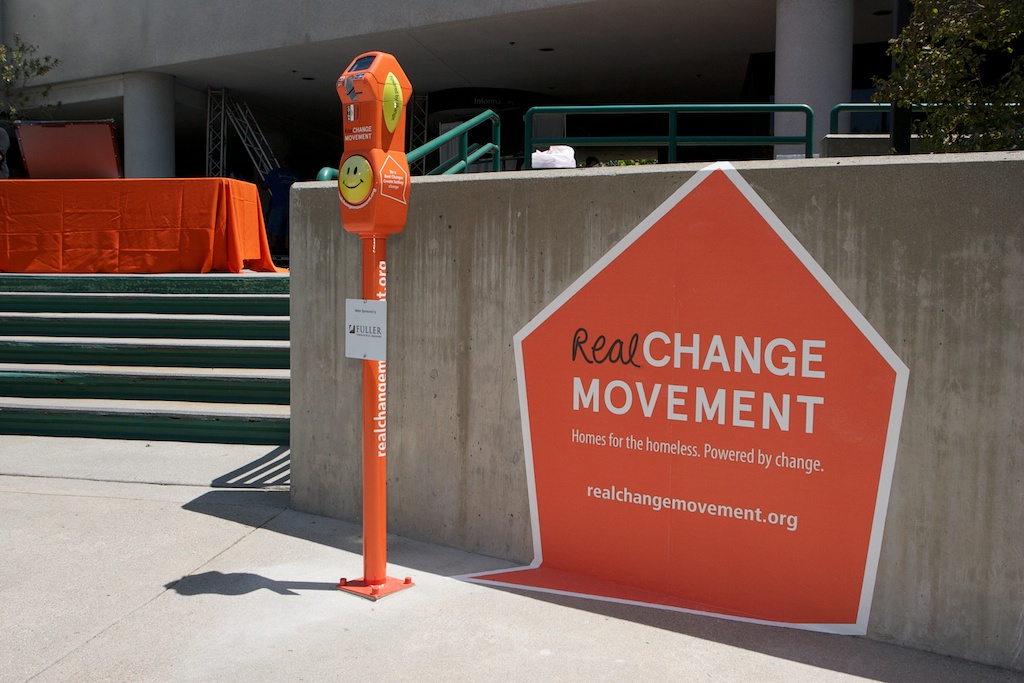
It’s an eye-catching way to raise money and awareness about homelessness: 14 parking meters around Pasadena, Calif., all converted to collect change for those living on the streets.
In the last few weeks, Pasadena has joined several large cities around the U.S. that have set up what are essentially “homelessness meters.” They’re retrofitted parking meters that allow passersby to donate money by depositing coins or even swipe debit or credit cards. That money then goes to homelessness charities and organizations rather than directly to the homeless themselves.
“This is a clear alternative where people contributing know that all the money will go to effective services,” Bill Huang, the Pasadena housing director, told The Los Angeles Times.
Supporters say the money goes to organizations like the United Way or local homeless groups that know how to effectively use the funds for food, support and shelter and get around the possibility of that money going to drugs or alcohol. Two of Pasadena’s meters, painted bright orange and affixed with smiley faces, have reportedly raised $270 in their first three weeks. But elsewhere around the U.S., the meters have decidedly mixed results. In Orlando, for example, 15 homelessness meters have brought in just $2,027 in three years, and that was after the city spent $2,000 getting them up and running.
“I don’t know that these meters have been very effective anywhere, certainly not in Orlando,” says Jim Wright, a University of Central Florida professor who studies homelessness. “The concept was, I believe, oversold by the advocates and too rapidly embraced by politicos trying to create the impression that they were doing something significant about the homeless problem.”
Andrae Bailey, chief executive officer of the Central Florida Commission on Homelessness, which collects the money from Orlando’s meters, says they were installed in 2011 without a comprehensive homeless strategy focusing primarily on housing those in need.
“We tried to do meters without having a plan to house veterans and those with mental illness and disabilities,” Bailey says. “Anything other than a housing solution for the chronic homeless is a recipe for disaster.”
In Denver, 50 homeless meters bring in around $3,000 to $6,500 total each year, according to Denver’s Road Home, which launched the Donation Meter Program in 2007. The money goes to support services like housing, shelter, mental health and support services, says Denver’s Road Home executive director Bennie Milliner.
But some housing advocates criticize the meters as merely an attempt to reduce panhandling. Paul Boden, director of the Western Regional Advocacy Project, a collective of various West Coast homeless organizations, says that the installation of meters is often in conjunction with either increased enforcement of panhandling laws or additional legislation. Both Denver and Atlanta, which installed meters several years ago, have also worked to crack down on panhandlers.
“It’s a way to possibly reduce panhandling,” says Dennis Culhane, a University of Pennsylvania psychiatry professor who studies homelessness, adding that he doesn’t see much substantive impact from the meters on truly solving the problem of homelessness in those cities.
More Must-Reads from TIME
- Donald Trump Is TIME's 2024 Person of the Year
- Why We Chose Trump as Person of the Year
- Is Intermittent Fasting Good or Bad for You?
- The 100 Must-Read Books of 2024
- The 20 Best Christmas TV Episodes
- Column: If Optimism Feels Ridiculous Now, Try Hope
- The Future of Climate Action Is Trade Policy
- Merle Bombardieri Is Helping People Make the Baby Decision
Contact us at letters@time.com